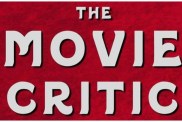British filmmaker Shane Meadows has carved out a niche for himself as an independent director who sets his films in the Midlands area of England, just north of London. His latest This Is England, goes back in time to the early ’80s where a twelve-year-old boy named Shaun (played by first-time actor “Tommo” Turgoose) starts running with a gang of skinheads after losing his father in the Falklands War. What starts as a bit of fun mischief turns into something far more serious, as he goes through a violent coming-of-age when he becomes the protégé of a racist skinhead named Combo (Stephen Graham from Snatch). It’s a striking story with a number of memorable performances, but what’s surprising is that the story is based on incidents from Shane’s own youth when he ran with a skinhead gang.
ComingSoon.net talked to one of England’s more eclectic directors about this very personal film to find out which parts of his movie were based on his life.
ComingSoon.net: This movie is about as different from “Dead Man’s Shoes” as that was from “Once Upon a Time in the Midlands.” You seem to jump around between genres, but this seems like a very personal film from your past. Can you talk about that?
Shane Meadows: Yeah, I mean it’s probably the most autobiographical film to date, because “Dead Man’s Shoes” and “Midlands” were related to experiences of people that I knew whereas this one was about me. And if you picked up the character name is Shaun Fields in the film, and my name is Shane Meadows. (laughs) Alright, there was slight subtle changes in there but it’s of an event that I remember and a period that I remembered. I was a skinhead. I’ve got the same tattoo on my finger, so it is very similar and it’s the most personal film I’ve ever made.
CS: Considering how many films you’ve made, why did you wait so long to tackle this subject from your past?
Meadows: I think there were probably two things. You mentioned “Dead Man’s Shoes” and when working on that, which is the lowest budget film I’ve made, it actually was the most liberating experience for me, because I went back to a process which is about not having a script, about working with new actors, about being able to improvise, about having complete creative control, working with a production company, Warp Films, that supported that, and so on that, I kind of learned that I could never make “This Is England” in a normal development way. It had to be made in the way that we made “Dead Man’s Shoes” just with a little bit more money because it was period. So I think really it was because I was waiting for the right opportunity to make it, and I think also looking back, after making “Dead Man’s Shoes”, what inspired [that movie] was this moment
if you see the “Dead Man’s Shoes” DVD, there’s a documentary called “In Shane’s Shoes” which is about that moment in my life which (inspired) me to become a filmmaker, being in this flat and seeing this act of violence that affected me so much that I had to find a different path and hence, got creative and got into film.
CS: I did think that the movie felt a lot more like “Dead Man’s Shoes” than “Once Upon a Time in Midlands” which felt more like a studio movie in some ways.
Meadows: Yeah, I think also, if you think about it, this was the first time I worked with the same producer twice and a producer I’ve now started to work with for a few years to come hopefully, so I took the crew and DoP and editor from “Dead Man’s Shoes” so I’ve know found, if you like my team that I like to work with creatively, so Danny Cohen who shot it and Chris Wyatt who edited it were both people who I’ve almost found. Took me four or five films to find them. (chuckles)
CS: I understand that you also ran with skinhead gang when you were very young. Did you go through a lot of the same things as Shaun does, such as the violence?
Meadows: Yeah, I mean that all happened and I obviously had that relationship. The difference was that I didn’t have a father who was killed in the war, but my father was a lorry [truck] driver so he wasn’t around much. There was that thing where I met a gang that I sort of became the Gadget character, and I met all those people and I was younger than everyone and had a lot of balls and was brave, so they liked me for that, so I got included in the gang when I was youngest and met a Combo character who was utterly charming, utterly convincing, yet had quite a dangerous, violent streak in him. All of those elements were there really and I listened to the reggae music. The skinhead movement for me wasn’t the right wing skinhead movement. It was more to do with the black Trojan skinhead movement.
CS: Have you ever been in touch with any of the people from the gang you hung around with back then and do you know what happened to them?
Meadows: Yeah, I did know a lot of those people; I don’t keep in touch with them, but I know from when I go back to the pubs, I know where they are and what they’re doing. Some of them have disappeared, but a lot of them are still around. A lot of the people that have appeared in my films are people who still live in the same place, which is where my Mum and Dad still live. Oh, yeah, they’re all there and I don’t know who’s seen it and who’s not. Obviously, the way I work with actors is that you like the actors to dump a little bit of their own personality on it, so I’m not saying “This is who you have to be.” When we cast, the cast become
sort of like the Woody character. Joe who played Woody was a very funny guy so he brought a lot of that humor into Woody that probably wasn’t in the original Woody.

CS: You worked with a lot of actors on this film who you’ve worked with before, so how’d you convince them to get skinhead hair cuts?
Meadows: Well, this is funny actually. The girls were the worst because all the girls had long hair and Vicky, who played Lol, had not had a haircut since she was 5. She had it trimmed, but she always had long hair. I actually filmed it and some of it’s going to be on the DVD I hope. It was quite nerve wracking because the producer Mark was there and we had to cut it two weeks before filming ’cause I wanted it to look like it had grown out a little bit so it wasn’t too fresh, even including perming Cynthia’s hair, who plays Shaun’s Mum, but we were nerve-wracked because we hadn’t actually closed the finances on the film. The film wasn’t even fully financed and we were cutting her hair! And at the same time, I think Mark was in a bit of a state really, because he didn’t tell me this obviously. We knew it was all going to come in but we were waiting for some money to come in, so that was nerve-wracking. I think it was an amazing experience really for the actors, because once they had their haircuts, they became the parts. It almost changed the way they walked and changed the way they moved. We put the costumes on the same day and let them wear them even in the rehearsals and they all suddenly transformed, so the haircuts were great. I looked at a lot of reference materials, ’cause we really wanted to make sure that they were accurate.
CS: Has their hair been able to grow back properly after getting it cut like that?
Meadows: Yeah, in the film, there’s one scene where Combo looks at Lol as she’s coming out of the flat, and that was a scene we had to pick-up four months later, and Vicki who played Lol had only just got her hair back again, so it’s the only scene that she’s wearing a cap (laughs) because they didn’t want to cut it again. But they were fine. A lot of the girls really liked it. I think they’ve become quite iconic in England, ’cause they’re on posters and fashion and style magazines, and we’ve seen a rebirth in England of that look.
CS: Except for Stephen, most of the actors were fairly young, so I can’t imagine they remembered the time when this movie takes place. It must have been very strange for them.
Meadows: Well, I had to really work with them in workshop and rehearse with them for over a month before we shot to get some of the modern dialect and sayings out, ’cause a lot of kids talk different than the way they used to, so we had to get a lot of the slang words out, and that took a lot of work in rehearsals to get them to really transform and I showed them a lot of films from the period and photographs, really to get the authenticity in acting, so that took a long time and some intensive rehearsal.
CS: How did you wind up finding Tommo?
Meadows: What I think is what’s a really useful thing is if you look on the website. We knew three of the kids from Stage School and I knew that the character had to be special, so we found him on the street, he’d been expelled from school, and his original casting is actually on that website. It’s phenomenal. We found out that first of all he wanted us to pay him even to come to the audition whereas every other kids just was desperate to do the film, he just didn’t think he was going to get the part, so he just tried to get five pounds out of us, and then to keep getting him back, we had to keep upping the gifts. It became PlayStation games and then mobile phones and he was really cheeky. He had never acted before. Obviously, it was a big risk and it took a lot of workin’ with him but he’s such a fantastic actor. What he did was so honest and pure and he questioned everything. It was really strong.
CS: Had he ever acted before?
Meadows: He’d never done anything. I think he’d been a squirrel in a school play and actually he got dropped from that part. But to be honest with you, that’s the first time that he’s ever done anything like that. He wasn’t even going to school. He’d been expelled from school. He was not very well behaved when we worked with him. He only did one afternoon a week of school, so take him from what we got to putting him in that
(chuckles) he’s nearly in every single scene. There’s only one scene he’s not in so it was really huge. I think he performed. It’s probably one of the best performances I’ve seen.
CS: Did you have him audition with Stephen at all?
Meadows: Yeah, Stephen and the rest of the cast were fantastic with Tommo, because the cast actually became part of the family and he still sees us all really. Stephen worked with him and I’d like to give him history, so I rehearsed every day for like I said, four weeks before we filmed, every day for three hours, trying to get them all to know each other and try and get a sense of the gang. The gang really helped him, people like Woody, Stephen was great, and even though Stephen played a nasty part, one of the things that he helped him with was when Tommo had to say racist language and didn’t want to say it because he didn’t feel it as a person. Stephen would help to say that it’s important to say that because we want to show how hurtful it is. It was great ’cause Stephen was like a father figure to him.

CS: Had Tommo ever kissed a girl before doing that scene with the older goth girl?
Meadows: He had because he’d done a lot of things with girls, but still had an innocence, and he really fancied the girl that played Smell, so that helped in the scene where he kissed her. He loved that and wanted to do take after take.
CS: I figured as much since the way you talked about him bribing you to audition, I figured he must already have some charm with the ladies.
Meadows: Oh, he’s got incredible charm and incredible wit. He’s really funny and he’s a really smart kid, and he knows that if any adult was taking advantage of him. That was important I think for the character.
CS: While watching the movie, some might consider Shaun’s mother irresponsible by leaving him with the skinheads but how did you feel about it, having been in that situation yourself?
Meadows: The thing when they first cut Shaun’s hair and she sees the gangs, and this is very important for me, is that she doesn’t want at first him to hang with the gang, but when she sees they’ve helped him out and he’s happy and she sees the gang in the café, I think she really believes that they’re good and that’s why she leaves him with them. She sees that they’re not bad people even though they look scary, and that was the reality. Another reality was that when Combo came out, that turn, the skinhead gang I was with were always friendly people and great fun to be with, and they weren’t angry or fighting and didn’t like violence. That wasn’t what they were about, so I wanted to make a skinhead film that showed them in a different light to a lot of other skinhead films.
CS: Was it hard recreating the times since the locations had been changed so much since then?
Meadows: It is. I’ve got a great location and really worked hard. The production team was fantastic and the designer. It was tough finding it. The main problem was that windows had changed. The estate that we found was great because it had a lot of walkways and underpasses and ones with not a lot of traffic, which meant we didn’t have to block roads and have too many period cars. We have to be very creative when you’re filming these things when you’ve got not a lot of money to throw at things, but I think when you don’t have money, you have to be more creative anyway.
CS: I remember being around in the early ’80s and a lot of the movies glorified the skinheads and the punks but you never saw the National Front or the racism or the effects of the Falkland War on kids and I’m curious to know why you think that’s never been shown in movies.
Meadows: No, it’s a strange period really. I don’t think we’ll ever get up to it because it was before the internet and before computer games had really taken off. Kids still played out in the summer days and there was so much anger and confusion at the time in Britain that for me, it was such an important moment, and obviously, there was a lot of unrest and times were not great in the UK. The reason which for me this is called “This Is England” though is that
I didn’t call it “This Was England” in that I did think that it was actually relevant to today’s England that story was told, ’cause there’s a lot of problems now that we’re facin’ again with racism to do with different things. To do with going to a war in Iraq that nobody publicly believes that we should be in is similar to Falklands. The way that it’s not the most integrated country at the moment and it wasn’t then, and I just think there’s parallels to be drawn there.
CS: I was wondering about whether there were similar feelings over there among the youth because of the war.
Meadows: Yeah, there is a lot of relevance. There was a big racist attack before we shot the film, a black kid was murdered by other kids, and it was just those kinds of things that you think we’ve moved on from are still happening, so for me, it was really important and the right time to make the film. I think that’s why it’s done so well in the UK because it was the right time to make it.
CS: I was curious to know how it was received there and whether or not it might have reopened old wounds there for those who were around at the time.
Meadows: It created great press and great debate and a lot of interest. I’ve never seen so much press for an independent film. We just had press everywhere. It created debate. We were on political shows, in papers, so it was fantastic for the film and actually, the film grew word-of-mouth so every week we were up against “Spider-Man 3” but we did really good box office because every week, the film got bigger and bigger instead of getting smaller and smaller, which normally happens with an indie film. I think people really picked up on all that and it created debates about racism, which is important to me. People ask questions.

CS: Interesting. I didn’t realize it played at the Tribeca Film Festival so close to its UK debut.
Meadows: Yeah, it opened in England on the 27th of April and a week after it opened, it was at Tribeca.
CS: You’ve set most of your movies in the Midlands area, so do you foresee yourself venturing out into other places?
Meadows: Yeah, I think making “This Is England”, that bookended that period for me and now the next film or the next chapter in my filmmaking is going to be looking at different locations, different stories and then exploring a couple of avenues. The next two things I’ve got in development are very different projects.
CS: Are you going to try to continue working this way, sort of independent and low-budget like the last two movies?
Meadows: Yes, I think the next one’s going to be really low budget, but I’ve got a very big budget one which is quite an epic story called “King of the Gypsies” which I’m trying to get off the ground and start writing that. That’s the next big one, which is probably going to be the biggest budget film to date. I think after “This Is England”‘s success, now’s the time to get that together.
This is England opens Friday, July 27 in New York and L.A., and is part of the IFC First Take day and date program.









